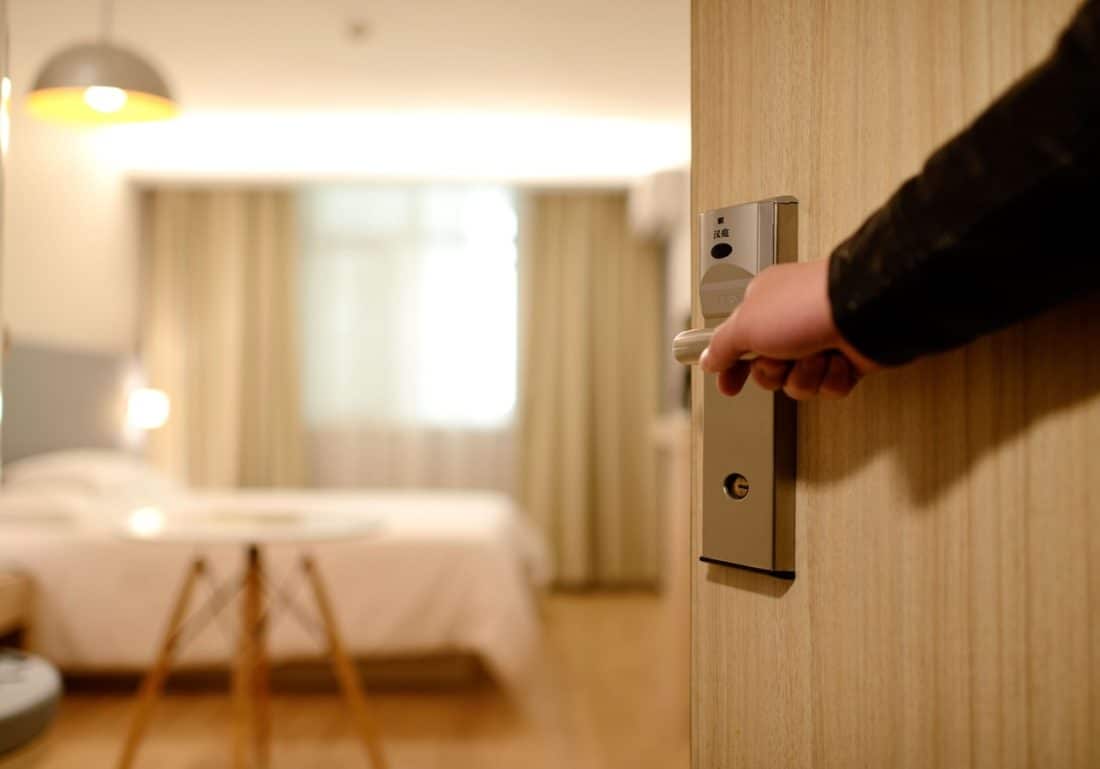Covid-19 has affected every industry. But few have needed to pivot more than the travel and hospitality industry. As the pandemic wears on, consumers are eager to travel, just not the way they’ve done it before.
Their loyalty comes with fresh, sparkling clean conditions. It’s a logistical challenge first, then a marketing challenge. Hotels and others are meeting these challenges with a little co-branding and cross-promoting magic.
The 2020 Traveler
Business travel has ceased, and it’s not expected to rebound fully for several years. Overnight, destinations that relied on business travelers were faced with the challenge of reinventing themselves. It was slow at first but then, suddenly, the regional, staycation traveler emerged.
Hotels and tourist destinations have discovered the distance that travelers will drive for a vacation has increased during the pandemic. A 100-mile radius was once the norm for a family road trip; now industry experts are seeing that expand to upwards of 300 miles.
Group bookings for business conferences and large weddings are cash cows, but not anymore. However, rates for individual bookings (also called transient room bookings) are higher. It doesn’t take as many of those bookings to replace total room revenue for the year; lower occupancy caps aren’t necessarily hurting business.
Spontaneous new groups and segments are popping up as part of this cohort. For example, luxury hotels are seeing a profitable increase in micro-weddings this summer. Typically guests book these at the last minute for all-inclusively contained events within the hotel property for safety.
Clean Wins the Prize
Study after study has found that the top concern for these travelers right now is cleanliness. McKinsey & Company research shows intense room cleaning is the top action travelers want to see from hotels to protect guests.
The industry is listening and responding. But taking these actions is one thing. Proving it—and earning the travelers’ trust—is another.
TripAdvisor, the online review and booking site, has added filters to let travelers search destinations based on safety and sanitization. The industry is trying desperately to find ways to communicate how seriously they’re taking their disinfecting measures.
Co-Branding Cleanliness
- Hilton has launched an official Hilton CleanStay program in partnership with the maker of Lysol, featuring advanced cleaning protocols. Little touches within the protocol can communicate peace of mind. An official Hilton CleanStay Room Seal sticker “with Lysol protection” over the door can indicate that it hasn’t been entered since it was disinfected. (Here’s a list of other major hotel cleaning programs.)
- Great Wolf Lodge has created Our Paw Pledge, a commitment to health and safety, travel flexibility, and community commitment. Co-branded in this effort is Proctor & Gamble. The maker of Spic and Span and Febreze will provide a CleanPLUS Experience with its products and with sanitation consultation. Another co-branding partner under Our Paw Pledge is Chainalytics. It’s a supply chain management and industrial engineering firm that can establish guest flow and capacity standards for social distancing.
- United Airlines has co-branded its initiative United CleanPlus in partnership with Clorox. The airline isn’t exclusively using Clorox yet (it’s using up current inventory), but it’s already banking on brand recognition. United hopes that by co-branding with Clorox, the airline will show customers that it’s “leveraging the disinfecting expertise and products from the #1 trusted brand.”
- Royal Caribbean Group and Norwegian Cruise Line have launched the Healthy Sail Panel to help them meet coronavirus safety requirements. The fierce rivals—along with other cruise lines—know working together may be the only way they’ll be able to thrive again.
The Future Traveler
These co-branding measures give legitimacy to the industry’s efforts, but it also provides a lasting framework moving forward. After all, as industry researcher Jay Sorenson sees it, “clean” will be a serious promise expected for a long time.
“We may never touch airline tray tables, hotel TV remote controls, and car hire steering wheels without hesitation again. Protection against disease will become an expectation in the same manner that protection from terrorism has been built into the travel system. In much the same way that travel companies seek to be rated for quality of hospitality or generosity of frequent flyer programs, so too will new surveys be introduced to grade providers on disease prevention.”
Sorenson adds, “customers have been conditioned through a lifetime of broken promises to expect this is just a marketing ploy. Companies that prove otherwise will find themselves on top.”
Image via Pixabay





Join the conversation